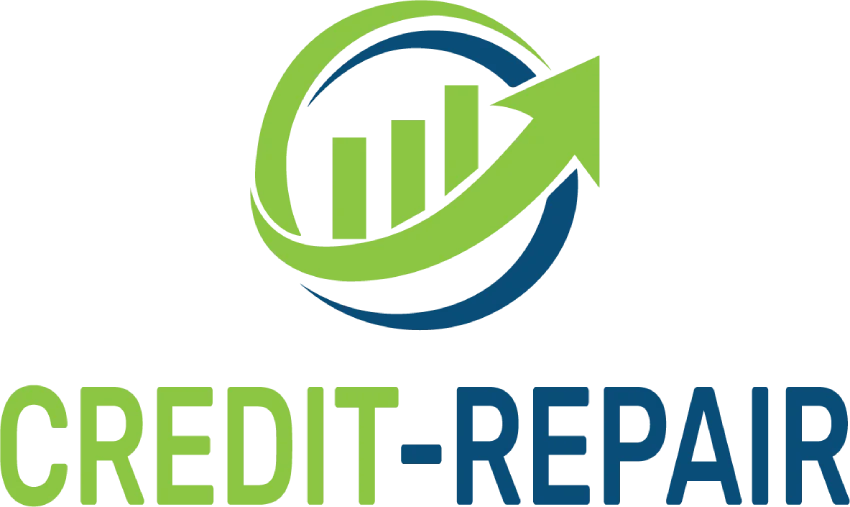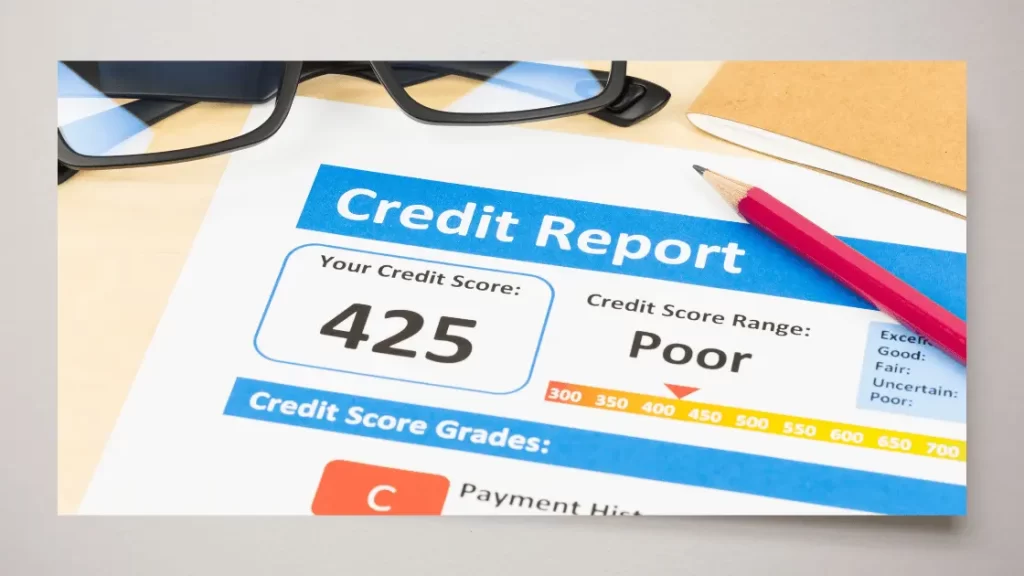Taking proactive steps to remove Transworld Systems from your credit report is essential for improving your creditworthiness. Begin by obtaining a copy of your credit report from major credit bureaus and thoroughly review any entries associated with Transworld Systems.
Identify inaccuracies, such as discrepancies in account details or outdated information, and promptly dispute these errors with the credit bureaus, providing supporting documentation.
Open communication with Transworld Systems is crucial; work towards resolving any legitimate debts and explore possible options for settlement or negotiation.
Regularly monitor your credit report to ensure the successful removal of Transworld Systems-related entries, ultimately contributing to a healthier credit profile and increased financial stability.
Transworld Systems:
Transworld Systems is a well-known player in the financial services sector, specifically in the field of debt collection. They provide comprehensive solutions for managing accounts receivable, helping businesses maintain their financial balance.
With a strong foundation and a team of experienced professionals, Transworld Systems ensures efficient recovery of debts, supporting businesses in their efforts to control credit.
They serve a diverse range of clients, from small enterprises to large corporations, offering tailor-made solutions to meet their requirements.
Beyond debt collection, Transworld Systems also offers customer service, first-party collections, and back-office solutions.
By providing this wide range of services, the company allows their clients to focus on their core business operations, while taking care of the complex aspects of debt recovery and management.
In the digital age, Transworld Systems leverages advanced technology to streamline their processes and deliver exceptional services.
They have built a reputation for trust and reliability in the industry by adhering to high standards of professionalism and legal compliance.
However, it’s important to note that the actions of this third-party agency can have significant implications for individuals, especially about their credit scores.
What is Transworld Systems?
Have you ever wondered what happens when businesses struggle to collect the money owed to them by customers? Well, that’s where debt collection agencies like Transworld Systems step in. Transworld Systems is a global debt collection agency that specializes in recovering unpaid debts on behalf of businesses.
When a business finds itself in a challenging situation where a customer is not paying their debt, they can seek the assistance of Transworld Systems.
This third-party agency takes on the responsibility of reaching out to the debtor and arranging for the payment of the outstanding amount. It’s like having a debt superhero on your side!
But here’s the catch – Transworld Systems operates within certain guidelines set out by the Fair Debt Collection Practices Act (FDCPA). This means they have to play by the rules and treat debtors fairly.
They can’t use abusive tactics or try to trick people into paying their debts. Debtors have the right to dispute a debt, and Transworld Systems respects that.
Traditional methods for data collections:
What sets Transworld Systems apart is its comprehensive approach to debt collection. They use a combination of traditional methods, like phone calls and letters, as well as modern techniques such as data analytics and digital communications.
It’s like having the best of both worlds. By leveraging these strategies, Transworld Systems increases the chances of successfully recovering debts.
But their services don’t stop there! Transworld Systems also offers other useful solutions. They provide pre-collection services, which help businesses prevent overdue debts from becoming a headache in the first place.
Additionally, they offer customer retention solutions, helping businesses maintain strong relationships with their valued customers.
So, whether you’re a business struggling to collect unpaid debts or looking for ways to prevent them in the first place, Transworld Systems has got you covered.
With their expertise and commitment to fair practices, they are here to assist businesses and debtors alike. It’s like having a helpful friend in the world of debt collection.

How does Transworld Systems affect your credit?
When Transworld Systems goes after your unpaid debts, it can affect your credit in multiple ways. If they successfully collect the debt and you pay it off, your credit report will reflect this positively.
However, the fact that the debt was in collections may still stay on your report for up to seven years. It’s important to note that a paid debt is generally seen more favourably compared to an unpaid one.
But if you don’t pay the debt, Transworld Systems may report it to the credit bureaus, which could harm your credit score.
Now, the impact on your credit will vary depending on various factors such as the amount of debt and your overall credit history. Sometimes, having a collection account can bring down your credit score by as much as 100 points.
If you think that Transworld Systems has wrongfully reported a debt or violated your rights under the FDCPA (Fair Debt Collection Practices Act), you have the right to dispute the debt and seek legal action.
It’s important to remember that dealing with a debt collection agency can be complicated, so seeking professional advice can often be beneficial.
Common complaints against Transworld Systems
Transworld Systems, a well-known player in the debt collection and financial services industry, has faced numerous complaints. One major concern revolves around the lack of transparency in their accounts receivable management.
Debtors often question the origin and details of their debt, as they are not given sufficient information about their financial responsibilities. Another area of dissatisfaction is the customer service offered by Transworld Systems.
Many debtors have reported instances of harassment and aggressive tactics, such as receiving repetitive phone calls at all hours.
These actions not only disrupt the debtor’s daily life but also violate the Fair Debt Collection Practices Act (FDCPA), which governs the behaviour of debt collection agencies. Additionally, Transworld Systems has been accused of failing to validate debts, a crucial aspect of credit control.
Despite the FDCPA’s requirement for debt collection companies to validate debts upon request, many debtors have found Transworld Systems to be non-compliant. This non-compliance leads to further financial stress and confusion for the debtors.

Legal Rights When Dealing with Transworld Systems
When you’re dealing with Transworld Systems or any other debt collection company, it’s vital to know your legal rights.
The FDCPA (Fair Debt Collection Practices Act) ensures that you’re treated fairly throughout the debt collection process. This means no abusive or deceptive practices and a level of compliance within the industry.
One of your rights is the ability to dispute the debt. If you don’t believe the debt is yours, you can send a written dispute to the collection company.
Once they receive your dispute, they have to stop all collection activities until they have provided proof of the debt. This is an important aspect of credit control, giving you the chance to challenge any potentially incorrect claims.
You also have the right to restrict how a debt collector contacts you. If they continue to violate these restrictions, you can file a complaint with the Consumer Financial Protection Bureau or your state’s attorney general.
This emphasizes the importance of following legal guidelines in the debt collection industry.
What are your rights against debt collection companies?
The Fair Debt Collection Practices Act (FDCPA offers valuable protections for individuals who find themselves dealing with debt collection companies. One crucial provision is the right to receive a comprehensive notice regarding the debt in question.
This notice must contain vital information about the debt, including details about the creditor and your rights. By emphasizing transparency in accounts receivable management, this provision ensures that individuals have all the necessary information to make informed decisions.
Furthermore, the FDCPA guarantees the right to be free from harassment or abuse. Debt collection companies are strictly prohibited from resorting to threatening language or making false statements.
They are also not allowed to contact you at inconvenient times or locations. These guidelines promote the importance of providing respectful customer service within the industry.
In addition to these protections, the FDCPA grants you the right to seek damages if a debt collection company violates your rights. If you can prove that a violation has occurred, you may be entitled to receive compensation for any damages suffered, as well as reimbursement for attorney’s fees.
This provision underscores the significance of conforming to legal requirements and maintaining accountability within the debt collection and financial services industry.
Lastly, the FDCPA ensures that you have the right to legal representation. If a debt collection company initiates legal action against you regarding a debt, you have the option to be represented by an attorney.
This right ensures that you can adequately defend yourself and emphasizes the critical role of adhering to legal regulations in all business operations.
How to win a debt collection lawsuit?
When you’re dealing with a debt collection lawsuit, it’s important to understand the ins and outs of financial services and legal compliance. The first crucial step is to respond promptly to the lawsuit.
If you ignore it, the debt collector can end up with a default judgment in their favor. To increase your chances of winning the lawsuit, it’s a good idea to hire a consumer attorney who knows their way around business operations and legal compliance.
Another critical step is gathering all the relevant documents related to the alleged debt. This includes the original credit agreement, records of payment processing, and any correspondence with the customer service of the debt collection agency.
In the world of credit control, these documents can serve as solid evidence to refute the claims made by the debt collector. However, it’s important to note that the rules of evidence in debt collection cases can be complex, and they vary from state to state.
It’s essential to familiarize yourself with these rules or seek legal advice. For example, some states may require debt collectors to provide a copy of the original credit agreement, while others might need a detailed account statement.
Each case is unique, so it’s crucial to take a customized approach to navigate the complexities of credit control and legal compliance.

Affirmative defenses to consider in your response
When you’re faced with a debt collection lawsuit, it’s important know that there are several defenses available to you. One of the most commonly used defenses in credit control is the statute of limitations.
Each state has a specific time period during which a debt collector can legally sue you for a debt. If the debt collector has exceeded this time period, you can use the statute of limitations as a defense.
Another defense to consider is improper service of process. This defense applies when the debt collector did not serve you with the lawsuit correctly.
For example, they may have sent the notice to the wrong address or used an unauthorized method of delivery. If you can provide evidence that the debt collector did not follow the correct procedure, the court may dismiss the lawsuit.
The lack of standing is another defense worth considering. This defense applies when the debt collector cannot prove that they own the debt or have the legal right to collect it.
Important documentation:
In many cases, debt collectors purchase debts from the original creditors but fail to obtain the necessary documentation to prove their ownership. If the debt collector cannot provide this proof, the court may dismiss the lawsuit.
Lastly, you can dispute the amount of the debt as a defense. This defense applies if the debt collector has added fees or interest that were not part of the original agreement or are not allowed by law.
If you can prove that the amount claimed by the debt collector is incorrect, the court may either reduce the debt or dismiss the lawsuit.
It’s important to understand these affirmative defenses when responding to a debt collection lawsuit. They can help protect your rights and ensure that you are not unfairly burdened by excessive or unjustified claims.
Remember, each case is unique, so it’s always wise to consult with a legal professional for guidance tailored to your specific situation.
Strategies to Remove Transworld Systems from Your Report
Getting rid of Transworld Systems from your credit report can make a significant difference to your credit score. There are a few strategies you can consider to achieve this. Let’s start with the first one: debt validation.
Thanks to the Fair Debt Collection Practices Act (FDCPA you have the right to request debt validation. Essentially, this means Transworld Systems has to provide proof that they indeed own the debt and that the amount is accurate.
If they fail to do so, the law requires them to remove the debt from your credit report effective approach is to negotiate a pay-for-delete agreement with Transworld Systems.
To put it simply, you would engage in a conversation with them to strike a deal where they agree to remove the negative item from your credit report in exchange for payment.
Transworld Systems accountable
It’s vital to ensure that this agreement is documented in writing before you make any payments. This way, you can hold Transworld Systems accountable to their end of the agreement once you fulfill your part.
Disputing the debt directly with the credit bureaus is yet another strategy worth considering. You can accomplish this by writing a dispute letter to the credit bureaus, explaining why the information provided by Transworld Systems is incorrect.
The credit bureaus are obligated to investigate your dispute within 30 days. If Transworld Systems fails to verify the debt during this period, the credit bureaus are obliged to remove it from your credit report.
Lastly, in case Transworld Systems has violated any of your rights under the FDCPA, taking legal action against them is an option.
Winning a lawsuit against a debt collector has the potential to result in the removal of the debt from your credit report. Furthermore, it might lead to monetary compensation, which can help offset any associated legal costs.
In a nutshell, by following these strategies, you can work towards parting ways with Transworld Systems on your credit report, thereby potentially improving your credit score.

The process of debt validation
Dealing with debt can be overwhelming, but there’s legal process called debt validation that can give you peace of mind by ensuring you only pay what you owe. It all starts with a notice from a debt collector.
Within 30 days of receiving this notice, according to the Fair Debt Collection Practices Act (FDCPA), you the right to request validation of the debt. Simply write a letter including your name, address, and a clear statement stating your request for debt validation.
Now, here’s the important part: once the debt collector receives your request, they must stop all collection activities until they provide you with evidence of the debt.
Evidence of original agreement:
This evidence can come in various forms, like a copy of the original credit agreement, a detailed account statement, or documentation proving their ownership of the debt.
If the debt collector fails to provide this proof, they can’t legally continue collecting the debt.
Bear in mind that the debt validation process doesn’t automatically remove the debt from your credit report, but it does help verify if the debt collector has the proper authority to pursue payment.
If they can’t validate the debt, you have the right to dispute it with the credit bureaus. If the credit bureaus are unable to verify the debt, they are obliged to remove it from your report.
It’s worth noting that debt validation isn’t a one-size-fits-all solution.
Its effectiveness depends on various factors like the age of the debt, the available documentation with the debt collector, and the specific laws in your state.
Therefore, it’s crucial to consider all these factors and perhaps seek legal advice before embarking on the debt validation process.
Remember, you have the right to ensure that you only pay what you legally owe. Debt validation can be a powerful tool to help you navigate through the complexities of debt collection. Take control of your financial situation!
Making payment to remove an entry
Making a payment to get rid of an entry from your credit report is a key strategy in managing accounts receivable.
This process, known as a ‘pay for delete’ agreement, is part of how debt collection works.
It involves directly talking your financial services provider like a third-party agencye.g., Transworld Systems), and working out a settlement. But it’s important to keep in mind that a ‘pay for delete’ agreement isn’t always a sure thing. Collection agencies may or may not be open to this kind of arrangement.
What’s more, credit reporting bureaus might not agree to delete the entry. This emphasizes the need for legal compliance and getting any agreement in writing before making a payment.
Despite these potential challenges, making a payment to remove an entry can be a powerful way to take control of your credit.
It’s a real step toward showing your commitment to resolving financial issues.
Of course, this approach requires carefully analyzing the debtor’s financial situation, the amount owed, and the possible impact on the credit score.
Engaging a professional to remove the TSI entry
Engaging a credit repair company that specializes in removing TSI entries from your credit report can be a smart move. These companies are experts in credit reporting and can help you challenge any inaccurate information.
They know how to navigate the complex dispute process, which can be a real headache for anyone who isn’t familiar with it.
When you hire a credit repair company, they take on the responsibility of initiating the dispute on your behalf.
Typically, this involves the company sending dispute letters to the credit bureaus, asking them to verify the negative entry. If the bureaus can’t verify the information, they are legally required to remove it from your credit report. It sounds pretty good, right?
Well, before you jump in, it’s important to think about the potential costs. Credit repair companies usually charge fees for their services, and these fees can add up over time.
That’s why it’s essential to do a cost-benefit analysis before you decide to enlist the help of a professional. You need to weigh the potential improvement to your credit score against the financial investment it will require.
So, while hiring a credit repair company might seem like a tempting solution, take some time to consider the pros and cons.
Make sure the benefits outweigh the costs before you make a decision. Remember, it’s your credit score at stake, so choose wisely.
Maintaining a Clean Credit Report Post Transworld Systems
Maintaining a clean credit report takes more than just dealing with Transworld. It requires consistent and proactive financial management. So, how can you do it?
Firstly, it’s essential to make timely payments on all your credit accounts. This builds a good payment history, which is vital. Remember, late or missed payments can seriously impact your credit score. Therefore, staying on top of your payment schedule is crucial.
Next, consider your credit utilization ratio. It’s the amount of credit you’re using compared to your total credit limit. A lower ratio is seen as favorable by credit bureaus. So, it’s recommended to keep your credit utilization below 30%. By doing so, you’ll ensure a cleaner credit report.
Regular credit monitoring is another key aspect of maintaining a pristine credit report. It allows you to track any changes to your credit report and spot potential issues early on.
By keeping an eye on your report, you can verify the accuracy and timeliness of the information it contains. Don’t forget to take immediate action if you identify any inaccuracies.
To sum it up, keeping your credit report clean requires consistent effort. Make timely payments, watch your credit utilization, and stay vigilant with credit monitoring. These steps will help you maintain a healthy credit history, which is crucial for your financial well-being.
How to monitor your credit report?
Monitoring your credit report is incredibly important if you want to take control of your credit health. But with so many options available, it’s easy to feel overwhelmed. Luckily, there are a few methods that can make it easier for you to keep tabs on your credit.
One of the best ways to monitor your credit is by using credit monitoring service. These services are designed to give you regular updates on any changes or updates to your credit report.
Another handy tool for staying on top of your credit is setting up credit alerts.
These alerts can be set up with the credit bureaus and will notify you when there are any significant changes to your credit report.
By getting these alerts, you can rest easy knowing that you’ll be the first to know about any important updates. Plus, if action needs to be taken, you can jump into action right away.
By taking advantage of these credit monitoring methods, you’ll have the peace of mind that comes with knowing your credit report is in good hands.
So don’t wait any longer, start monitoring your credit today and stay one step ahead of any potential issues!
Steps to avoid future debt collection issues
In the world of financial services, avoiding future issues with debt collection is crucial for maintaining a healthy business. And the first step in achieving this is to create a comprehensive financial plan.
This plan needs to consider all sources of income and all expenses, with a special focus on managing accounts receivable.
By prioritizing and paying off debts on time, can greatly reduce the risk of getting caught in the cycle of debt collection.
In addition to financial planning, it’s important to understand your rights under the Fair Debt Collection Practices Act (FDCPA). This act regulates the actions of third-party agencies that are involved in collecting debts.
By becoming familiar with this legislation, you can ensure that you are in compliance with the law and protect yourself from any unethical debt collection practices.
It’s also a good idea to keep a record of all your interactions with debt collectors. This way, you’ll have a solid reference for the future.
If you’re having trouble managing your debts, it may be beneficial to seek the assistance of a credit counseling agency. These agencies provide a variety of financial services, including debt management plans and negotiations with creditors.
Improving your credit score post-Transworld Systems
If you’ve had an experience with Transworld Systems, it’s important to make improving your credit score a top priority. One significant factor in credit reporting is consistent and timely payments, which can boost your score.
If you find it challenging to keep track of payment due dates, consider setting up automatic payment processing.
This will guarantee that all payments are made on time, giving you better control over your credit and positively affecting your score.
Lowering your credit utilization ratio is another effective strategy for improving your credit score.
This ratio is calculated by dividing the total balance on your credit cards by the total credit limit available to you.
Maintaining a low ratio can have a significant positive impact on your overall score.
Regularly reviewing your credit report is also crucial. This allows you to identify any errors or inaccuracies that may be having a negative impact on your score. If you do come across any discrepancies, it’s important to dispute them with the credit bureau right away.
Seeking advice from a credit counselling agency is a wise move as well. These agencies can provide personalized advice and strategies to help you improve your credit score. They can also help you understand the various factors that influence your score and guide you in managing them effectively. With diligence and commitment, you can take control of your financial health and improve your credit score.
Table of Contents
Get Your Credit Repaired With credit-repair.com
Google Review:
or
WHY CHOOSE US
We also would counsel you on real, legal, and ethical credit repair for clients rebuilding their life and credit ratings after hardship. Achieving financial freedom is the ultimate dream allowing you to live the life you want to enjoy. Get the help of a professional credit repair company by contacting us.
Our credit restoration services are tailored to your unique situation, and we never make you pay for anything you don’t need. When you sign up for either our Essentials or Essentials Plus packages, you can rest assured that you’ll be receiving the bare minimum of care necessary for your specific situation. You can opt for additional customization options to further tailor our offerings to your specifications. In this manner, you won’t overpay for perks you don’t use. This is the essence of adaptability.









